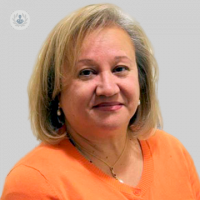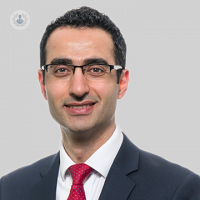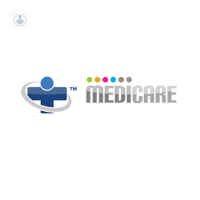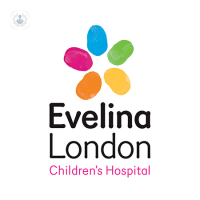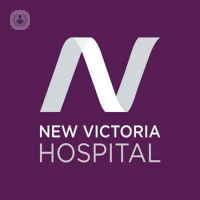
What is constipation?
The term “constipation” refers to infrequent bowel movements or difficulty passing stool. Constipation is usually defined as when a patient makes less than three bowel movements a week. These bowel movements may be difficult, even painful, and the individual may strain themselves trying to go.
Occasional constipation is common, and can be related to change of routine, going on holiday, or while taking medication. The body usually readjusts quickly and normal defecation rhythm is resumed. However, some people experience chronic (ongoing) constipation, which may require an examination by a doctor to rule out an underlying illness.
What are the symptoms of constipation?
The key symptoms of constipation are:
- Less than three bowel movements a week (apart from young infants – it is quite normal for breastfeeding babies to go a week without pooing)
- Poo is larger than usual and difficult to push out
- Poo is dry, hard, and lumpy
Constipation can also cause general discomfort, with sufferers feeling bloated, sick, or getting stomach aches. Some patients cause further discomfort by straining to push stools out. If the patient successfully defecates, they may feel as though they haven’t completely emptied their rectum.
Causes of constipation
There are many possible causes of constipation in adults, and sometimes there is no obvious cause.
Common causes include:
- Lack of fibre in the diet
- Not drinking enough fluid
- Sedentary lifestyle/not getting enough exercise
- Frequently not going to the toilet when you need to
- Changes to routine or diet
- Psychological factors, e.g. stress, anxiety, depression
- Side-effects of medication
Constipation is relatively common during and up to six weeks following pregnancy. In rarer cases, it may be caused by an underlying medical condition.
Such conditions include:
- Blockages of the colon or rectum – bowel obstructions, anal fissures and even tumours can block the passage of stool.
- Neurological problems – nerve diseases, including Parkinson’s and multiple sclerosis can affect the nerves controlling the muscles in the digestive tract that push faecal matter towards and out of the rectum.
- Problems with the muscles involved in bowel movements – weakened pelvic muscles or disorders that mean they don’t contract and relax in a coordinated way
- Conditions that affect hormones – certain conditions, including diabetes and even pregnancy affect the balance of fluids in the body, and this can lead to constipation.
Can constipation be prevented?
Leading a healthy lifestyle, with a diet rich in fibre can help prevent constipation. It is also advisable to drink plenty of fluids (about two litres of water a day), exercise regularly and go to the bathroom when you feel the urge to defecate, instead of holding it.
What is the treatment for constipation?
In most cases, lifestyle changes will resolve the problem:
- Increase the amount of fibre in your diet, e.g. cereals, fruit, vegetables.
- Increase fluid intake.
- Exercise more.
- Try to establish a regular toilet routine, and, if possible, don’t hold it in; go when you have the urge.
If these measures don’t work, the doctor may recommend laxatives to help stimulate bowel movements.
03-12-2013 06-14-2023Constipation
Professor Chris Summerton - Gastroenterology
Created on: 03-12-2013
Updated on: 06-14-2023
Edited by: Aoife Maguire

What is constipation?
The term “constipation” refers to infrequent bowel movements or difficulty passing stool. Constipation is usually defined as when a patient makes less than three bowel movements a week. These bowel movements may be difficult, even painful, and the individual may strain themselves trying to go.
Occasional constipation is common, and can be related to change of routine, going on holiday, or while taking medication. The body usually readjusts quickly and normal defecation rhythm is resumed. However, some people experience chronic (ongoing) constipation, which may require an examination by a doctor to rule out an underlying illness.
What are the symptoms of constipation?
The key symptoms of constipation are:
- Less than three bowel movements a week (apart from young infants – it is quite normal for breastfeeding babies to go a week without pooing)
- Poo is larger than usual and difficult to push out
- Poo is dry, hard, and lumpy
Constipation can also cause general discomfort, with sufferers feeling bloated, sick, or getting stomach aches. Some patients cause further discomfort by straining to push stools out. If the patient successfully defecates, they may feel as though they haven’t completely emptied their rectum.
Causes of constipation
There are many possible causes of constipation in adults, and sometimes there is no obvious cause.
Common causes include:
- Lack of fibre in the diet
- Not drinking enough fluid
- Sedentary lifestyle/not getting enough exercise
- Frequently not going to the toilet when you need to
- Changes to routine or diet
- Psychological factors, e.g. stress, anxiety, depression
- Side-effects of medication
Constipation is relatively common during and up to six weeks following pregnancy. In rarer cases, it may be caused by an underlying medical condition.
Such conditions include:
- Blockages of the colon or rectum – bowel obstructions, anal fissures and even tumours can block the passage of stool.
- Neurological problems – nerve diseases, including Parkinson’s and multiple sclerosis can affect the nerves controlling the muscles in the digestive tract that push faecal matter towards and out of the rectum.
- Problems with the muscles involved in bowel movements – weakened pelvic muscles or disorders that mean they don’t contract and relax in a coordinated way
- Conditions that affect hormones – certain conditions, including diabetes and even pregnancy affect the balance of fluids in the body, and this can lead to constipation.
Can constipation be prevented?
Leading a healthy lifestyle, with a diet rich in fibre can help prevent constipation. It is also advisable to drink plenty of fluids (about two litres of water a day), exercise regularly and go to the bathroom when you feel the urge to defecate, instead of holding it.
What is the treatment for constipation?
In most cases, lifestyle changes will resolve the problem:
- Increase the amount of fibre in your diet, e.g. cereals, fruit, vegetables.
- Increase fluid intake.
- Exercise more.
- Try to establish a regular toilet routine, and, if possible, don’t hold it in; go when you have the urge.
If these measures don’t work, the doctor may recommend laxatives to help stimulate bowel movements.


Feeling bloated? Finding relief from constipation and diarrhoea
By Mr Michael Stellakis
2024-12-30
Bloating and abdominal pain can happen due to a variety of reasons like diet, certain foods and stress. Mr Michael Stellakis, one the UK's leading laparoscopic surgeons talks about relieving bloating, abdominal cramps and irritable bowel syndrome. Take a look at what may be causing your irritable bowels. See more
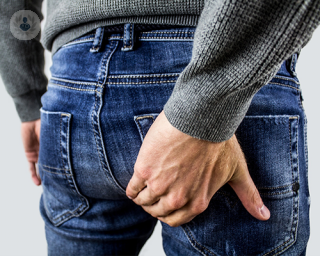

Haemorrhoids (piles) vs rectal prolapse: knowing the difference
By Mr Charles Evans
2024-12-30
Haemorrhoids (piles) and rectal prolapse are two conditions with very similar symptoms, but key differences regarding their treatment. Mr Charles Evans, a leading consultant general surgeon, has treated these conditions many times and in this article, he provides you with the knowledge to decipher the difference. See more


An expert look at treatment options for children’s chronic constipation
By Mr Brian MacCormack
2024-12-30
Highly respected consultant paediatric surgeon Mr Brian MacCormack offers expert insight on the various treatment options for chronic constipation in children and details when surgical intervention is necessary. See more
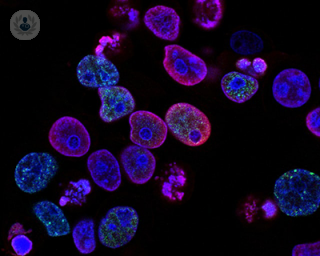

Are you aware of the signs of colorectal cancer?
By Mr Greg Wynn
2024-12-29
Renowned consultant general surgeon Mr Greg Wynn expertly explains which symptoms can be linked to colorectal cancer in this informative article. See more
Experts in Constipation
-
Dr Olga Kapellou
PaediatricsExpert in:
- Neonatology
- Newborn physical examination
- Constipation
- Diarrhoea
- Rashes
- Breathing problems
-
Dr Andrew Fagbemi
Paediatric gastroenterologyExpert in:
- Inflammatory bowel disease (IBD)
- Food intolerance
- Acid reflux
- Constipation
- Irritable bowel syndrome (IBS)
- Capsule endoscopy
-
Dr Bushra Al-Rubeyi
PaediatricsExpert in:
- Child development
- Paediatrics
- Asthma
- Constipation
- Chronic fatigue
- Child allergies
-
Dr Margarita Burmester
PaediatricsExpert in:
- Health check up (health screening)
- Infant colic
- Faltering growth
- Constipation
- Children’s primary care
- Newborn physical examination
-
Dr Mani Naghibi
GastroenterologyExpert in:
- Acid reflux
- Abdominal pain
- Diarrhoea
- Constipation
- Irritable bowel syndrome (IBS)
- Helicobacter pylori
- See all

Medicare Clinic
Medicare Clinic
603 Oxford Rd, Reading RG30 1HL, United Kingdom
No existe teléfono en el centro.
By using the telephone number provided by TOP DOCTORS, you automatically agree to let us use your phone number for statistical and commercial purposes. For further information, read our Privacy Policy
Top Doctors

Evelina London Children's Hospital Private Healthcare
Evelina London Children's Hospital Private Healthcare
Floor 1 St Thomas' Hospital, Westminster Bridge Road, London. SE1 7EH
No existe teléfono en el centro.
By using the telephone number provided by TOP DOCTORS, you automatically agree to let us use your phone number for statistical and commercial purposes. For further information, read our Privacy Policy
Top Doctors

New Victoria Hospital
New Victoria Hospital
184 Coombe Lane West, Kingston upon Thames, KT2 7EG
No existe teléfono en el centro.
By using the telephone number provided by TOP DOCTORS, you automatically agree to let us use your phone number for statistical and commercial purposes. For further information, read our Privacy Policy
Top Doctors
-
Medicare Clinic
603 Oxford Rd, Reading RG30 1HL, United Kingdom, ReadingExpert in:
- Allergy
- Cardiology
- Orthopaedic surgery
- Ultrasound
- Endocrinology
- Fertility
-
Evelina London Children's Hospital Private Healthcare
Floor 1 St Thomas' Hospital, Westminster Bridge Road, London. SE1 7EH, SE1 South Bank LondonExpert in:
- Paediatric Dermatology
- Child development
- Child Nutrition
- Paediatrics
- Preventive paediatrics
- Child health surveillance
-
New Victoria Hospital
184 Coombe Lane West, Kingston upon Thames, KT2 7EG, South LondonExpert in:
- Cardiology
- General Surgery
- Orthopaedic surgery
- Breast augmentation
- Pain management
- Spine
- See all
- Most viewed diseases, medical tests, and treatments
- Immunotherapy
- Alzheimer's disease
- Child nutrition
- Migraine
- Paediatric rheumatology
- Autoimmune diseases
- Joint pain
- Nutrition
- Weight loss injections
- Nipple discharge



